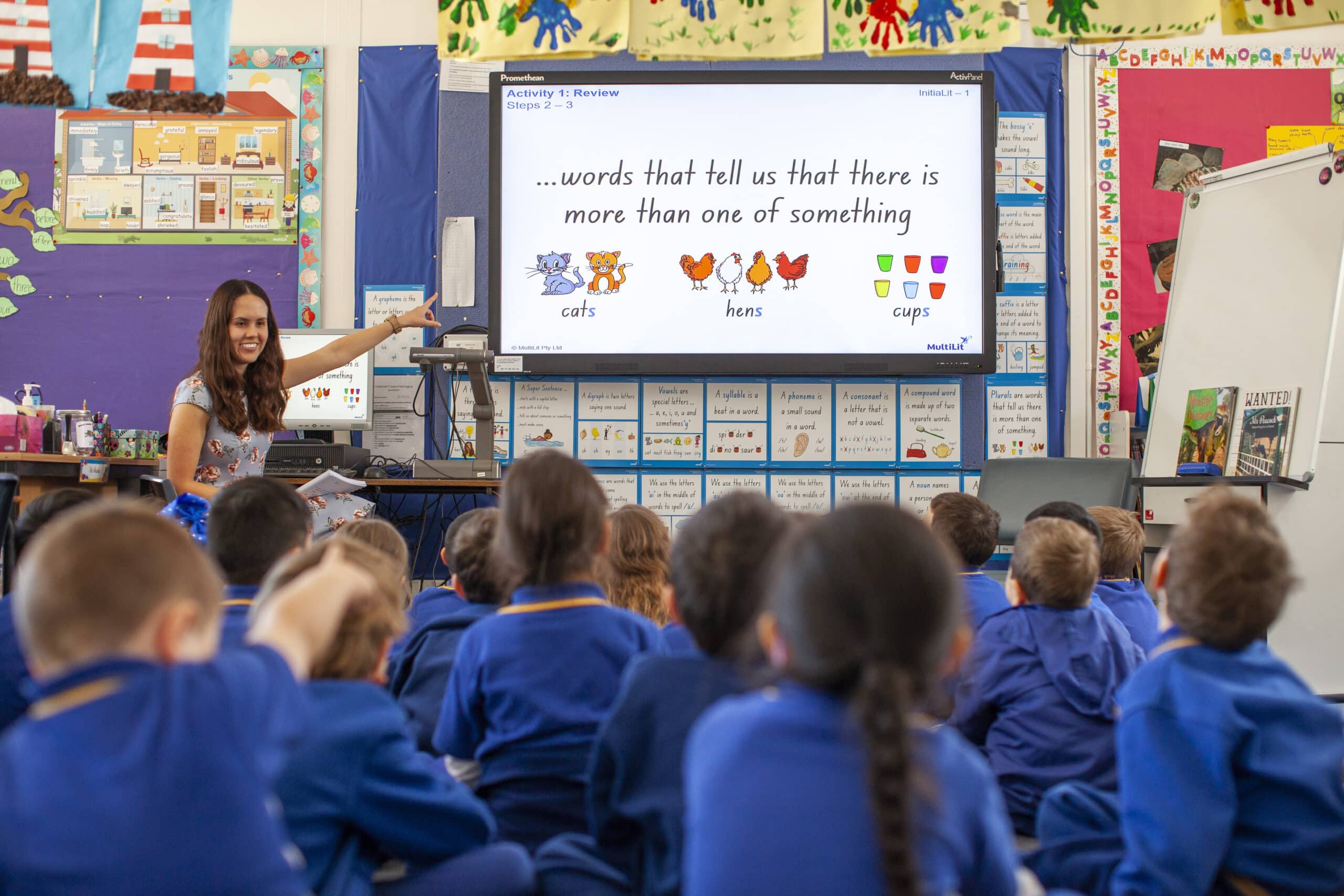Leading literacy researcher and program developer MultiLit welcomes the Queensland Government’s move to embed evidence-based reading instruction across the state’s primary schools, including a strengthened focus on phonics.
The Queensland Reading Commitment, announced by Education Minister Grace Grace this week, represents a significant step towards ensuring that all students are able to reach their potential as readers.

The $35 million investment will include more support for students in the classroom, professional development programs for educators, a comprehensive suite of reading materials including guidelines and resources, and the use of a Year 1 Phonics Check.
The new policy comes as the number of Queensland schools looking to embed systematic phonics teaching in their early years’ classrooms has risen. Uptake of MultiLit’s InitiaLit classroom reading program and resources has increased almost 30 per cent over the past 12 months.
“This announcement is a step in the right direction and reflects some of the promising work that has already been going on across Queensland schools, with more and more educators implementing evidence-based teaching practices that are proven to lift students’ reading outcomes,” said MultiLit Director of Strategy and Senior Research Fellow, Dr Jennifer Buckingham OAM.
“Queensland’s commitment to consistent evidence-based practice across all state schools will increase the likelihood that every child, regardless of their postcode, will receive quality instruction in the skills that are necessary to become a skilled reader.”
“This will go a long way to improving reading outcomes across the state.” Dr Buckingham said she looked forward to hearing further details about the policy, including the planned use of the Year 1 Phonics Check.
“Phonics screening is a simple yet effective way of finding out whether young children can decode words using their knowledge of letters and sounds, which is a key foundational skill for proficient reading,” she said.
“However, not all phonics screening is created equal, and I would encourage Queensland authorities to ensure they adopt only tried-and-tested screening, such as the UK-developed phonics screening check, which has been successfully rolled out in South Australia and New South Wales.
“In South Australia, for example, the proportion of Year 1 children who can decode words proficiently has improved dramatically since screening was introduced in 2018 – from 43 per cent to 68 per cent last year.”
For further information about how MultiLit’s programs, training and resources can support schools go to https://multilit.com/programs/